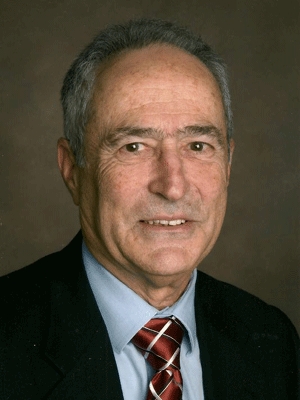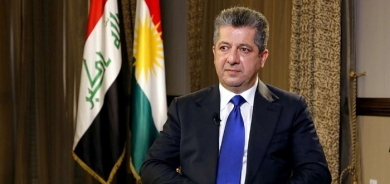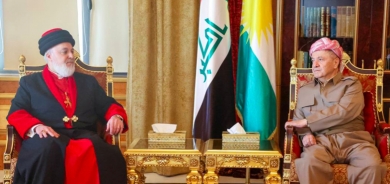Guest columnist offers timely insight on the history of the Kurds
November 21, 2015
From Media

The Kurds are an ethno-linguistically Iranian group who inhabit the mountainous areas south of the Caucasus Mountains. They number about 30 million and are found in large numbers in 4 countries: Turkey (14-16 million), Iraq (6 million), Syria (2 million) and Iran (7 million). Kurds are not Turks, not Arabs and not Persians. They are a minority in each of the countries they inhabit, speak their own language, Kurdish, and are mostly Sunni Muslim.
The most famous Kurd was Saladin, who led Kurdish and Arab armies during the Crusades and captured Jerusalem. From 1453 until the end of World War I, most Kurds were subjects of the Ottoman Empire. It allowed them to handle their local affairs. When World War I ended, the Kurds were unrepresented at the Versailles Peace Conference. Their fate was determined by the Allies and later by Turkish leader, Kemal Ataturk.
From the beginning of the new Turkish state, Kurds were viewed as a backward culture, denied their ethnic identity and forbidden to use Kurdish in public places. Periodic Kurdish revolts were suppressed, and their region in southeast Turkey was neglected. During the 1980s the Kurds organized a leftist party, the PKK, which fought against the Turkish state. More than 40,000 died. PKK leader, Abdullah Ocalan, captured in 1999, remains influential. He negotiated a cease-fire with the Turkish Government in 2013 which held, until recently, when violence again erupted.
Following World War I, Britain created Iraq from three former Ottoman provinces: One majority Shia, another Sunni, and the third (in northern Iraq) Kurdish. The Sunnis were placed in charge and remained so until the overthrow of Saddam Hussein in 2003.
Saddam was a secular Sunni Arab nationalist. In 1979, the Shah of Iran was overthrown by Ayatollah Ruhollah Khomeini, a charismatic Shia cleric, who urged Iraq’s Shia to revolt against the “unbeliever” Saddam. Furious, Saddam invaded Iran, hoping to oust Khomeini and seize Iranian territory. He failed. Iraq’s Kurds were not supportive, so he unleashed a series of attacks against them, destroying 4,500 villages, displacing 1 million, and killing 182,000.
Not until Saddam’s 1990 invasion of Kuwait did Iraq’s Kurds get some protection from him. The U.S. established a “no fly” zone from which Iraqi aircraft were excluded. Iraq’s Kurds began to build political institutions and a self-defense force, the pesh merga. During the 2003 invasion of Iraq, the Kurdish area remained relatively stable. Kurdish leaders demanded the right to share in state revenues and develop their oil. Kurds now enjoy semi-autonomy within a weakened Iraq.
Syria’s Kurds, who inhabit the northeast in a swath that abuts Kurdish areas of Turkey and Iraq, have long suffered discrimination at the hands of its Arab majority. Until recently they were treated as second-class citizens, often denied government employment and even citizenship by the Alawite-dominated government. As of 2007, 80 percent of them lived in poverty.
With the outbreak of civil war in 2011, Syria’s leader, Bashar al Assad, began to pay attention to the Kurds, granting them citizenship and conceding a large degree of autonomy to them. As Syrian Government authority began to crumble, a powerful Kurdish militia, the YPG, battled Islamic State forces. The YPG has been the most effective fighting force against ISIS in Syria on which the U.S. has relied. But U.S. ally Turkey hates the YPG for its ties with the PKK. The U.S. has a dilemma: To support the YPG or to give Turkey a free hand to attack it.
Kurds were among the earliest people to inhabit Iran. Throughout its history, there were prominent Kurdish kingdoms. Shah Mohammad Reza Pahlavi suppressed the Kurds' aspirations for autonomy, so many Kurdish organizations supported Ayatollah Khomeini. They were soon disappointed, however, as he declared jihad against them, killing more than 10,000. Iran remains suspicious of its Kurdish citizens, and zealously opposes the emergence of a Kurdish state in neighboring Iraq.
Though denied a country, the Kurds have kept the dream alive. Iraqi Kurdistan’s leaders have been careful not to articulate a vision of a “Greater Kurdistan” which would incorporate their ethnic kin from Turkey, Syria and Iran, in order not to give those nations cause to destroy them. But the disintegration of Iraq, the shattering of Syria and the emergence of ISIS, all raise a tantalizing possibility that a new nation may soon arise: Iraqi Kurdistan.
Martin Charwat is former member of the board of the World Affairs Council of the Mid-Hudson Valley.
The Poughkeepsie Journal











